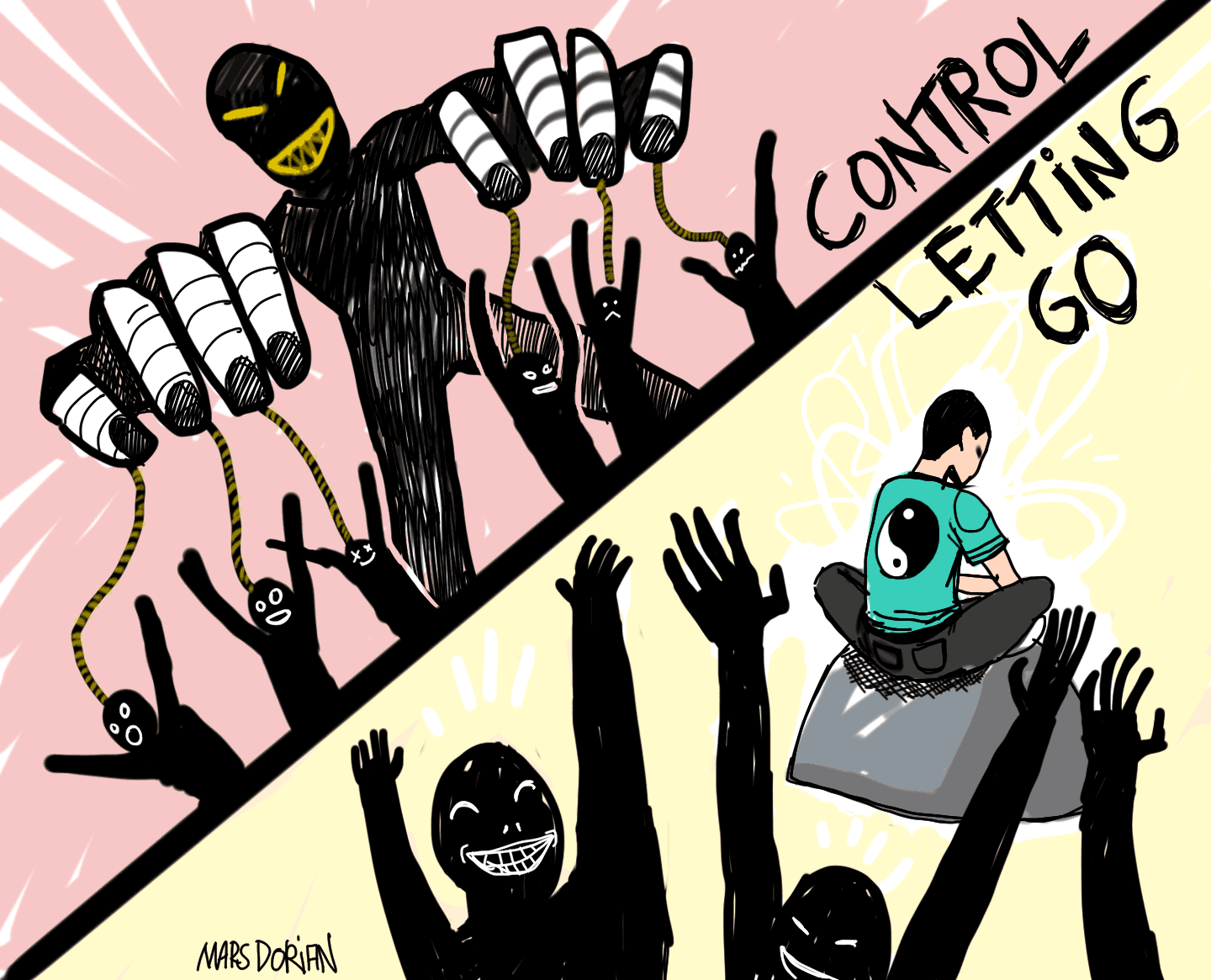By Mars Dorian, Contributing {grow} Columnist
Control. Humans are suckers for it. There’s a little Darth Vader in all of us – the little dictator who only supports his own opinion and vaporizes anything that doesn’t go his way. As marketing professionals, many of you out there have had an entire career built on command and control of “THE MESSAGE.”
But no matter how much control you want over the opinions people have of you, we also know that what you say about your brand is not nearly as important as what people say about it. And it’s time to come to terms with that. In fact, it’s time to celebrate it.
Obsessive control over your brand is ineffective
When everything you say about your brand is finger-licking good, you come across as phony. We all know nothing is 100% sweet and shiny. When something seems too slick, we immediately become suspicious of it. Our minds say: “There must be something bad about it. Where’s it hidden?”
You may even turn away or confuse your potential customer, and confused people don’t bother to engage or buy.
Being perfect is also exhausting. All the time you spent monitoring and “rectifying” your perception could have been used to wow your customers and create work that results in grrreat engagement and revenue. Let them handle word of mouth.
And quite frankly, you’re trying to do the impossible. We have more than a billion people on Facebook alone now, and attempting to control every message about your brand in that gigantic mass is as promising as Sisyphus pushing a titanium-coated boulder for the rest of eternity.
There is an alternative.
First, listen to the Pointer Sisters’ song “I’m So Excited” and repeat the following line: “I’m about to lose control and I think I like it.” Go ahead. I’ll wait for you.
Next, consider some of the ways you can increase your brand value by diminishing control:
Open up your discussion around your platform. REALLY open it up.
I recently wrote an article about JK Rowling, criticizing her new book from a branding perspective. Needless to say, the discussion ignited a wild fire of commentary. Most of the comments smoked my opinion and I was tempted to delete some of the negative criticism. But then I thought — “No way. That’s all part of dialogue you’re trying to establish here.”
I believe the integrity and respect of your brand is closely related to how you handle “negative” press and criticism.
Promote the negative press. I wasn’t under the influence of any illegal substance when I wrote this line. I occasionally show “negative” statements about my work and brand, because I want to show the full spectrum of my personal brand to the community. Yeah, it’s uncomfortable, because we think we’ll scare away our potential customers. But I actually think it helps you – the people who believe in you will stand up for and defend you. You’re increasing engagement with your “right” audience while scaring away the ones that weren’t really interested in your offer in the first place.
Encourage people to steal your content and work. Don’t waste your time with hunting down piracy. Neil Gaiman, one of the most accomplished authors of our time, once said he doesn’t mind pirated versions of his books because it increases his “brand” awareness and sales.
Too many people are obsessed with people who copy and steal their work. You think you’re losing out, but in reality the “pirates” help you spread awareness.
Isn’t it a little strange that you go into a theater and they announce that all cameras and video are not allowed? Are they crazy? Why not tell everybody to snap photos all they want and promote the performance far and wide?
Let the pirates give you “free” marketing. The right people will buy it from YOU. Put down the rifle and loosen your force grip.
As always, there’s no exact 1-2-3 formula for doing it RIGHT, but the less you’re trying to control the interaction with your brand, the more opportunities you give people to spread your message — in their own way.
This viewpoint may make you uncomfortable. Tell me about it in the comment section.
Original illustrations by the author.
